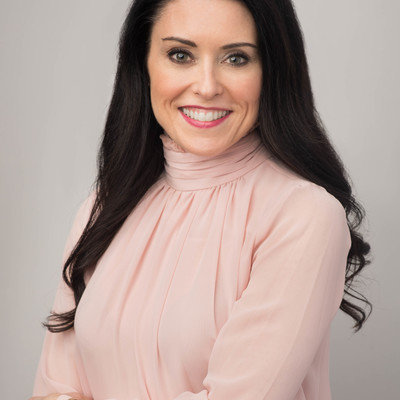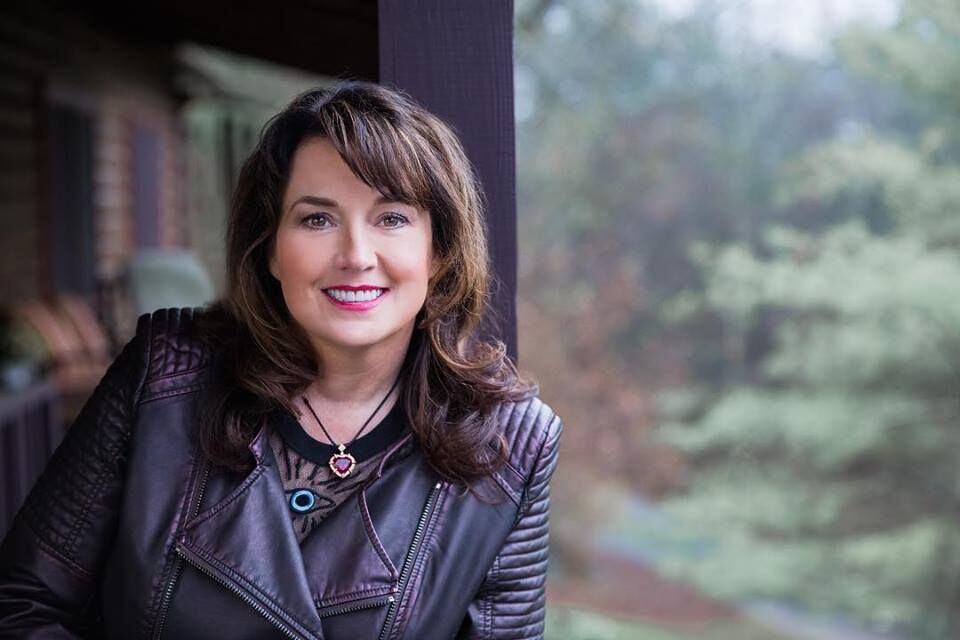Dogged determination. I was just too stubborn to quit.
As part of my series on the “5 Things You Need To Know To Write A Bestselling Book” I had the pleasure of interviewing Sherrilyn Kenyon.
New York Times and international bestselling author, Sherrilyn Kenyon, is a regular at the #1 spot. With legions of fans known as Menyons (thousands of whom proudly sport tattoos from her series and who travel from all over the world to attend her appearances), her books are always snatched up as soon as they appear on store shelves. Since 2003, she had placed more than 80 novels on the New York Times list in all formats including manga and graphic novels. Her current series are: Dark-Hunters®, Chronicles of Nick®, Deadman’s CrossTM, NevermoreTM, Silent SwansTM, Lords of Avalon® and The League®. Her books are available in over 100 countries where eager fans impatiently wait for the next release. The Chronicles of Nick® and Dark-Hunters® series are soon to be major motion pictures while Dark-Hunters®, Lords of Avalon® and The League® are being developed for television. Join her and her Menyons online at MySherrilyn.comand www.facebook.com/mysherrilyn.
Thank you so much for joining us! Can you share a story about what brought you to this particular career path?
I always wanted to be a writer. From the moment I came into the world. When I was five years old, I told my mother that I wanted to be a New York Times bestseller. After she finally stopped laughing, she scowled down at me and asked if I had any idea what that was. Of course not. I was only five. But it was on the front of the novels she liked to read, so I figured it had to be something important and since I wanted to be a writer when I grew up, that was probably the kind of writer I was supposed to try and be. Two years later, I wrote my first novel and while it didn’t hit the New York Times, I scribbled it on the made up cover I created — it was illustrated by me, after all. But I was undaunted as I had a lofty goal to pursue. I even put that in my Brownie manual as my goal: When I grow up, I want to be a Writer and a mother (I even did it in that order). I kept writing and creating stories, and when I was a young teen, I spent my babysitting money on a subscription to Writer’s Digest magazine and began following editors and publishing houses. The rest, as they say, is history.
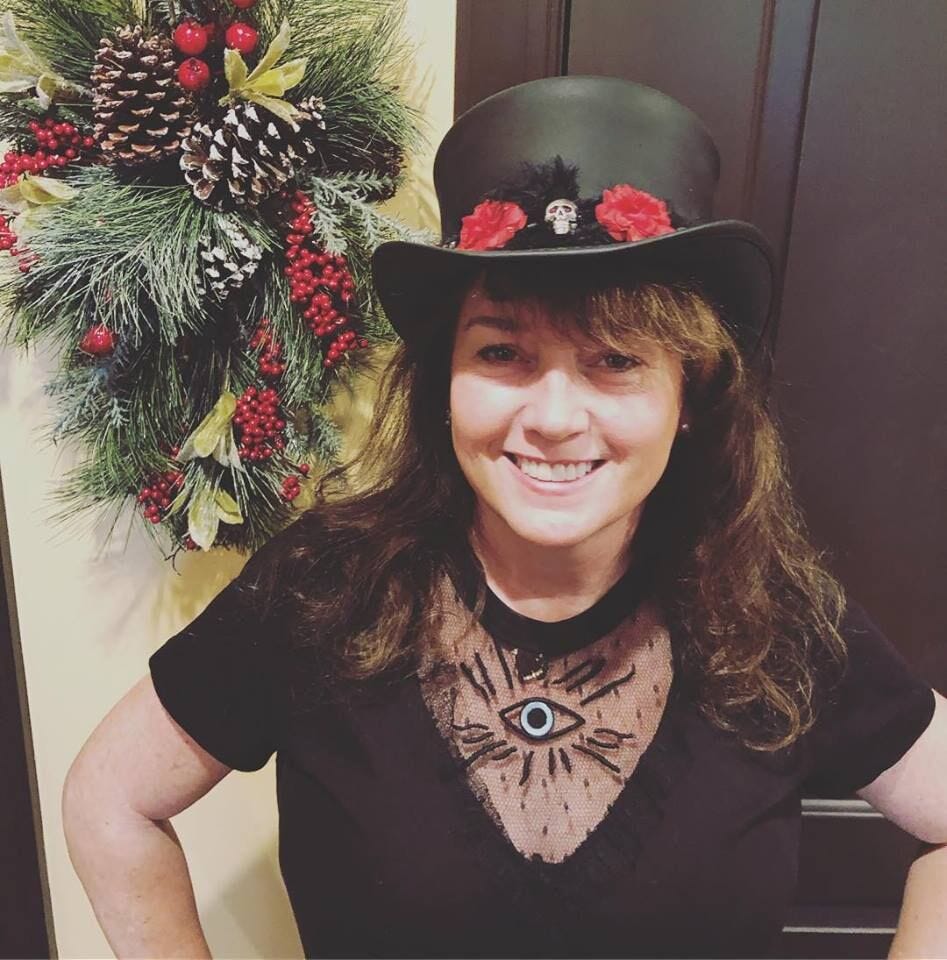
What was (so far) the most exhilarating or fulfilling experience you’ve had as an author?
There have been so many wonderful moments that it’s hard to pick just one. Nothing can beat seeing the look on a fan’s face when you meet them and they love your work. That moment when you hug them. But probably one of the most touching was when a soldier came up to me at a signing and he couldn’t really speak. He handed me his insignia, stepped back and saluted me. As the daughter of a career sergeant who was deployed to war right after my birth, there’s nothing more touching to me. His wife who was with him told me that reading my books was what had gotten him through his deployment and back to her in one piece. I take no credit there as that belongs solely to the men and women who trained him and served with him, but I am filled with so much gratitude to all who serve and to their families. And I will never forget the deep honor he paid me that day, any more than I’ll forget the flag I have that was sent to me by a company deployed in 2008. I keep that in a very special place of honor in my office. It makes me feel closer not just to my fans, but to my father who passed away from Agent Orange before my children were born. It’s why I cherish every drawing, gift, letter and/or note a fan gives me. They are my family, too.
What was the craziest, weirdest, wildest experience you’ve had as a bestselling author?
The first time I had a fan show me their Dark-Hunter tattoo. I will never forget it. I was setting up for a signing and this very attractive lady came up. Since she was a bookseller, I thought she was going to tell me I was in the wrong spot and that I needed to move, so I started apologizing and pulling up my supplies. She laughed and said, “No, no. I have something to show you.” Then she started undoing her pants. Oh my God! I thought we were about to be arrested! When I tried to make her stop, she laughed. “Hang on!” She unbuttoned them even more. My eyes bugged. I’m thinking, “lady, I got that, too, and I have small kids. I can’t afford to go to jail!” But thankfully, she just bared her hipbone to show me her Dark-Hunters bow mark. It was one of the most beautiful sights in the world! It was in Atlanta in 2003. I will never forget it!
What is the greatest part about being a successful, bestselling author? What is the worst (if anything) part?
I’m not homeless, sleeping in my car and someone actually pays me for my books when I get them finished. There’s nothing better than that. I always tell writers that what I do is easy in that I know I have a publisher for what I’m working on. The hardest thing in the world is to write a book when you don’t know if it’s going to sell, and yet you have to find the time and motivation to keep going through all the rejections. When you spend all those years trying to sell something and you have your spouse and others harassing you about wasting time and money chasing rainbows because you’re not good enough and you’ll never be good enough. That no one is ever going to read your work and you’re wasting your life on “foolishness.” Once you actually begin to sell, then they start backing off. Of course, then they think magic elves come in and write the books for you, because everyone knows that writing isn’t hard work (insert laughter). And of course, you have time in the day to go pick up their laundry, do all the chores of the house and everything else while working your fulltime writing job, because the books are magically written the three hours at night while you sleep. My favorite story is always my eldest son who is also a writer. He was working on his first novel when he came down to my office and threw himself into the floor to writhe in utter agony by my chair. “Ugh! Ma! I’ve got characters who are supposed to be on this planet and they’re off on a ship, headed in the wrong direction. They’re supposed to be fighting and they won’t talk. I don’t know what to do. They’re impossible and no one’s listening to me!”
“Welcome to parenthood, son.”
He stared at me. Then glared at me. “Gah, Ma! Seriously, you have no idea how hard it is to write a book!”
Yeah, writers don’t get a lot of respect on the home front. Yet somehow we muddle through.
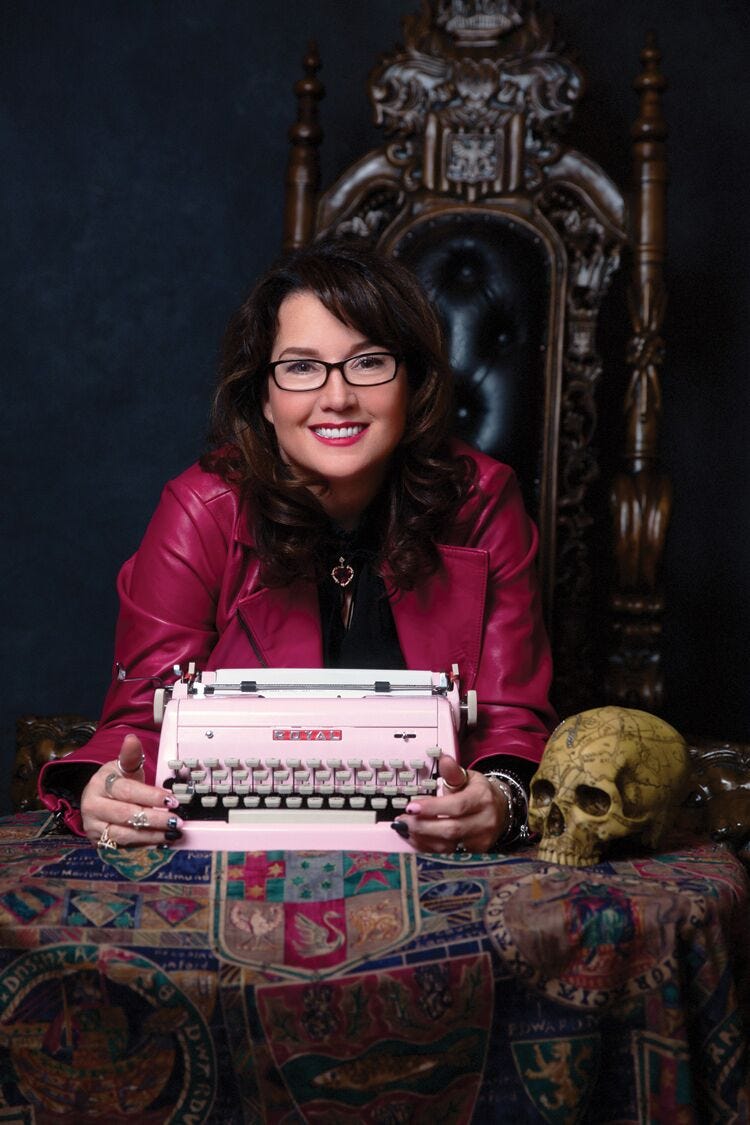
What is the one habit you believe contributed the most to you becoming a bestselling writer?
Dogged determination. I was just too stubborn to quit. Even when my ex was so belittling to me that he didn’t want to see a scrap of my writing because he was sick of it all and I had to hide my computer in a closet and work on it while he slept. Even when it seemed every door in New York was closed and I got the infamous rejection “No one at this publishing house will ever be interested in developing this author, do not submit her work to us again.” I kept going. Never give up. Never surrender — thank you Galaxy Quest! If you have a dream, whatever it is, always chase it. Don’t let anyone tell you that you don’t deserve it. Keep going and see it through.
Which writer or leader has had the biggest impact on you as a writer?
I used to say none really, until one day when I was explaining to my son what “voice” was for third person narrative. Like most writers, it was the hardest thing for him to wrap his head around. For many years, I explained it to other writers as the internal monologue we all hear. But for some reason that wasn’t quite getting through to him. So, to help my Mensa child, I reverted back to my philosophy courses and introduced him to what had really helped me get it: Plato’s Theory of Aesthetics. The fact that while we have a collective conscious that can identify the qualities that make a chair a chair, that within every single person we have differing elements of what makes that chair the “perfect” chair for our own unique tastes, and we each have a unique way that we describe that chair. That difference within us is what gives us our individuality and it’s what gives a character a “voice” and makes them alive and not just a “character.” So, it dawned on me that Plato would have to be the writer who made the biggest impact on me and my work. Kudos to him and Socrates!
I also have to give props to Maya Angelou, not because she impacted my writing, but my life. My mother raised me on her key philosophy in that people will never remember what you wear or what you say, but that they will never forget how you make them feel. It’s why I always try to leave people with a smile and to make their day brighter, if only for a moment.
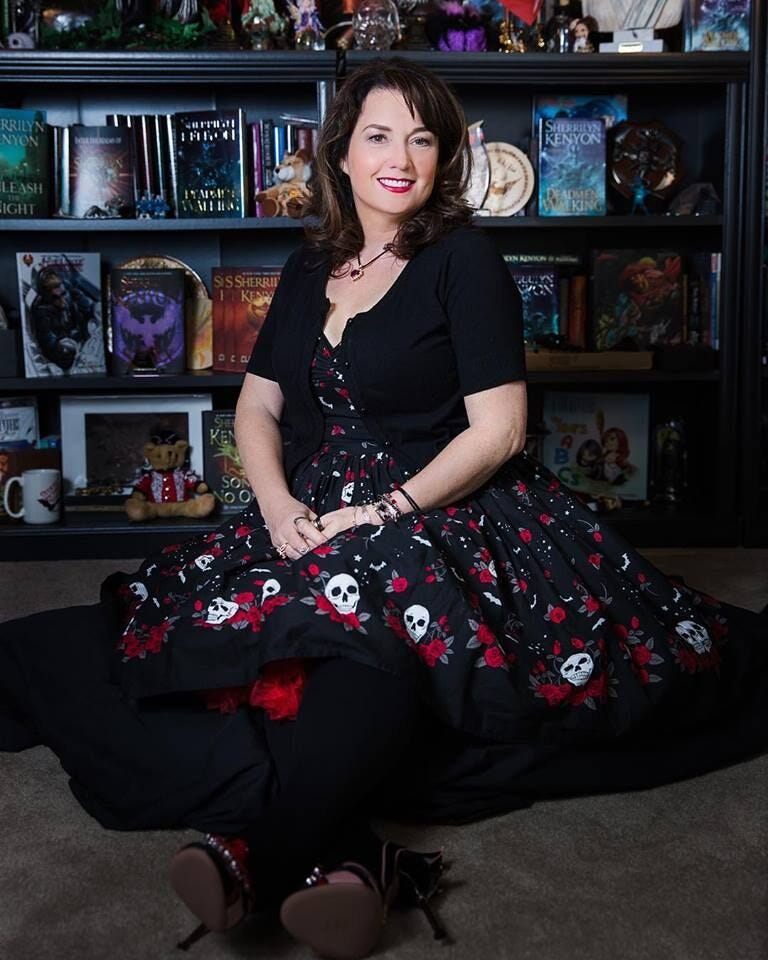
What was the biggest challenge you faced in your journey to becoming a bestselling author? How did you overcome it?
I always say there are two things you don’t want to ask me about: publishing and pregnancy because I’ll scare you off both. I’ve had so many challenges in my career that this in and of itself is a novel. Just trying to pick one is a paragraph. But I think I’ll go back to when I was living in Mississippi and I’d just come off public assistance due to the medical bills that had cost me my house, my car, and every material thing I had because my baby had been born prematurely. But I had my sons with me, so I was fine. I’d made a bargain with God that He could have anything he wanted so long as he left my kids alive. He took that bargain and I was good with it. But it was very hard times. I didn’t know if I’d ever get on my feet again or sell another book. My ex had become so disenchanted with my writing that I was forced to hide my writing in a closet to work so that he couldn’t see it because he’d fly into a rage. I couldn’t submit my beloved Dark-Hunters because he’d accuse me of wasting money on a pipe dream. So, for the first time in my then twenty-year career, I caved in and wrote a “marketable” book. Which meant I researched the market and since all my friends were publishing Regency-set historical romances and those were the hottest things going at the time, I wrote one, too, and thought that since I’d published six bestselling books, surely that one would sell.
My friends loved the book. I sent it off to my agent and she loved the book, too, and thought it some of my best work. So, she sent it out and one by one the rejections came in. That book garnered me the worst rejection of my career and I always tell writers that if they get a worse one, dinner’s on me: No one at this publishing house will ever be interested in developing this author. Do not submit her work to us again.
I learned from my agent that my ex had caused me to be blacklisted. Needless to say, I also lost my agent. So, heartbroken, I decided that if my career was really over then I would never worry about market trends again and that I would crash and burn writing only the novels and characters that I loved and that were burning a hole in my heart to be written. That’s what I’ve been doing ever since.
So, I dug out one of my Dark-Hunters manuscripts and dusted off my pirates, Deadmen’s Cross, both of which I’d been assured by everyone in the industry would never, ever, ever sell, and stole a stamp out of the ex’s wallet so that he wouldn’t know what I was doing with that stamp or hopefully know it was missing as I was tired of fighting about my career, and sent a proposal off to Laura Cifelli at HarperCollins. Since I didn’t have a phone as we were THAT poor, she called me on my neighbor’s phone to say that while she couldn’t do anything with the Dark-Hunters as there was no such thing as a paranormal market at that time and marketing wouldn’t touch it, she was interested in the pirates. She offered me a three-book deal. So, for the price of a single stamp, my entire life was changed and Kinley MacGregor was born.
What challenge or failure did you learn the most from in your writing career?
Not everyone is your friend. Because I’m not a jealous person, I don’t understand jealousy and I never have. I like to help people and I’ve always gone out of my way to do anything for another person that I can because that was how I was raised — it’s an obligation and a duty that we’re charged with, but other writers (or people) will not only take advantage of that, they will take the opportunity to knife you as many see kindness as weakness. That has always stunned me and it still does. I’ve never understood the need to go out and attempt to ruin someone with lies and rumors, and yet it’s the one thing that seems constant in this industry, and sadly, the world at large. And it’s so needless. To me, a rising tide floats all boats and readers want to read. They don’t want that negativity. I think authors accomplish a lot more by working together than they do by trying to tear each other down.
But the one thing I have learned is that you can’t change people, you can only change how you deal with them. So, when others begin to attack, don’t get angry, just smile. It reminds me of my mother’s favorite joke she’d tell when I was a kid. It was about a preacher in church who was talking about enemies and he asked if there was anyone present who’d lived such a moral life that they’d managed to have no one who wished them harm. About half the people present raised their hands. He stared out at them and scowled. “Are you sure that you have no one on this earth who would wants you dead?”
They thought about it a minute and all the hands went down, except one. The preacher was stunned because it was the oldest member of his church. Baffled, he gaped. “Miss Mable . . . please, share your wisdom with us. Tell us all how it is that you can be ninety-eight years old and have no one on this earth who wishes you harm. How is it that you have lived such an upright life that you’ve no enemies in this world.”
She put her hand down, gave a pretty smile and said, “why Preacher, it’s simple. I outlived those bitches.” So, that is always my game plan and what I’ve learned. It’s not to react to negativity. It’s to hold my head high and to do my best to outlive those who are seeking to do me harm. Or as my mom would say, “Get thee behind me, Bitches.”
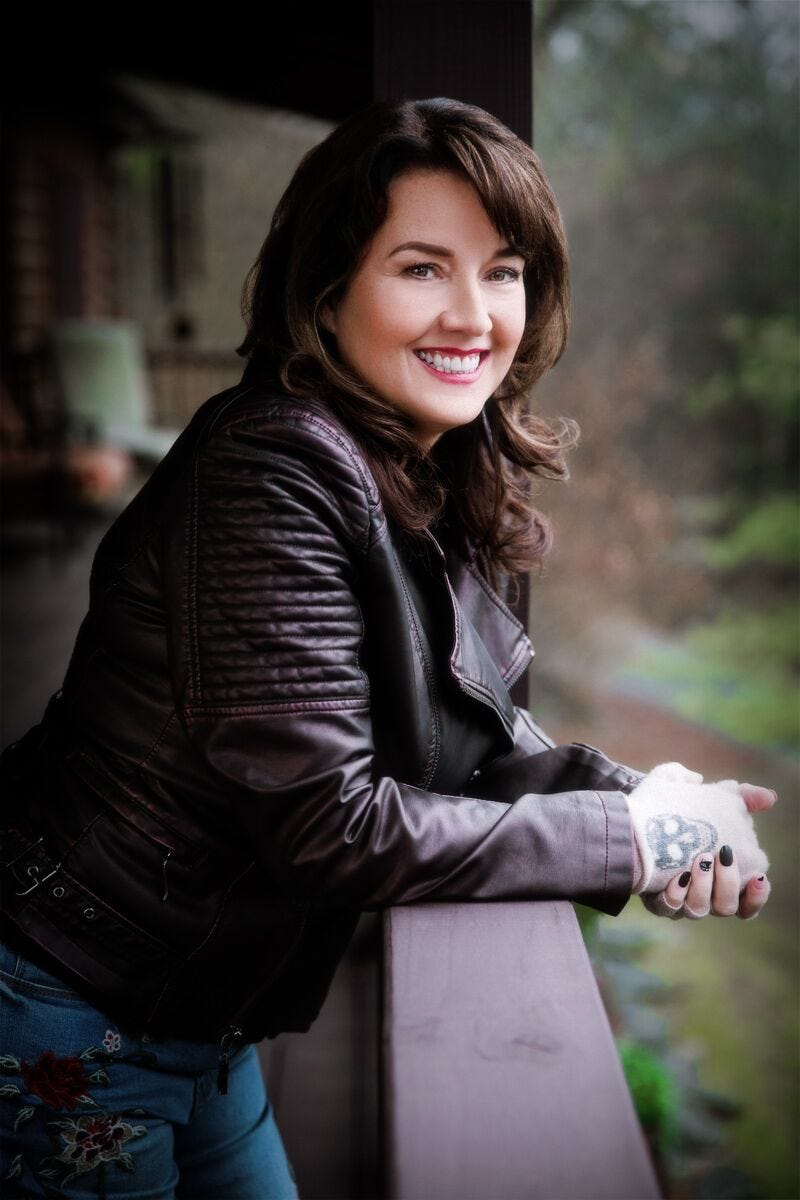
What are the 5 things you would tell your younger self who was just starting out on their writing journey?
1. Stop worrying about the market.It will take care of itself. Trends come and go. By the time you’ve figured out what has made the latest Flying Purple Zombies with Wigs a popular trend, the market has moved on to Skateboarding Pirate Gerbils and you’re stuck with a manuscript that won’t sell until the market swings back to the Flying Purple Zombies again, which is usually about a decade or longer. I’ve been in the business for almost forty years now and I’ve seen many trends come and go, and many friends get caught up in trend-chasing. Never become one of them. Keep your eye on your characters and your heart in what you love and you can never go wrong.
2. Get up and move around every so often.While you’re young, it’s not a problem. I could eat, sleep and live in my chair, much to the chagrin of my UPS delivery people who often flinched in horror when I came to the door, but as you get older those muscles tighten up and you end up walking like Frankenstein instead of Mary Shelley. I have major Achilles heel pain now from all those years I spent in my chair. A body needs to move. And while I have great muscles in my forearms, don’t forget to build those leg and back muscles, too.
3. Never get married.Seriously. What they don’t tell writers is that copyright will be viewed as marital property should you ever divorce and personally, I think that is hogwash. I made the mistake of putting my ex-husband through law school by working three jobs so that he could study and work none. And though he could never have gone to school or graduated had I not proofed his papers and tutored him while paying for every dime of it, I’m not entitled to any profit from the degree he could never have achieved without me, yet the laws claim that he is entitled to my excruciatingly hard work that he never participated in (he didn’t even read my books) and that he did his best to stop and prevent, and sabotage. All my fans know the legendary story of how I had to steal a stamp from his wallet in order to rebuild a career he’d fire-bombed because he was so dead-set against my publishing career. All I’ve achieved in my life and career was in spite of his direct interference and yet I’m being told that he has a right to what is literally my mental child for the rest of my life when he’s more capable of working than I am. So, I would definitely tell myself to stay to my original plan of never getting married.
4. Write fearlessly. Listen to no one and nothing other than your characters. Let those people live and breathe on the page. Don’t try and stifle them with rules. Don’t try and make them fit into boxes. That’s what makes characters, characters. If you want real people in your stories, then let nothing hold you back. When you sit down, turn the world off and just channel those people and let them live through your fingers.
5. You’re never too young to start (or too old).I had a lot of people who told me that I needed life experience or more education or more this or that, and it undermined my confidence. All you need to write is a story and a burning passion to tell it. While others may be well-meaning with their “advice,” they don’t understand and you shouldn’t listen to anything other than those people in your head who want to be heard. Just write. Let them out into the world. You’re their only conduit. Imagine if S.E. Hinton had thought herself too young to write a novel. Or if Homer had thought himself too old to begin. We have one shot at this life. Take it, because you won’t know how high you can fly until you jump off that cliff.
What are you most excited to work on next? Most excited to read next?
My Silent Swans series. It’s the story of the early founding mothers of America. Real women who came here who were prominent leaders and founders whose voices have been lost to time. For too long their tales have been lost to the annals of history and they’ve been ignored, but these were women who defied convention and who shaped the laws and the world that we take for granted and who made every bit the impact as that the men around them. They should have been every bit as much of a household name as John Smith and Thomas Jefferson, and I hope to make them so as they have quite the story to tell. Best of all, I’m directly descended from them! I’m hoping to have the first one out next year.
You are a person of great influence. If you could inspire a movement that would bring the most amount of good to the most amount of people, what would that be?
Judicial oversight and review. There’s too much injustice in the courts of America today and too many judges view their courtrooms as their own private kingdom. I actually had a judge say to me on record last August that he didn’t care what the law was before he made a decision with no facts whatsoever because he wouldn’t even hear the facts or review the brief he’d been given, and he knew nothing about the matter at all. I shudder every time that goes through my mind. I foolishly thought the days of Judge Roy L. Bean were behind us, but his spirit is alive and well, and still thriving in America today. That is truly terrifying and that is the movement I’d like to inspire. To see our laws actually enforced and enforced equally for all. Let’s make the American judges accountable to the American people for their poor decisions that are based on their own prejudices and lack of regard for the law they’re supposed to be upholding, and to remind them that they’re not God and that they are dealing with peoples’ lives. This isn’t a business. It’s human life they are in charge of, and the same for lawyers. Have some decency and humanity. The courtroom isn’t a docudrama being scripted. What they say and do could have severe consequences for the people who are trusting them to do the right thing. Not give us a lecture when they know nothing about the people in front of them. I’m not talking about good judges; we do have some of those rare unicorns. I’m talking about the ones who have lost focus and who don’t need to be there. The minute they forget their responsibilities to the public and to the people who pay their overinflated salaries, they need to be replaced. There needs to be a real oversight committee in place that takes complaints seriously, who will do due diligence and ride herd on them, and that will listen and remove those judges from the courtrooms. Otherwise, we might as well go back to trial by combat, which from what I’ve seen would be just as fair as a modern judge. And at least in trial by combat should you lose, you at least had the satisfaction of beating the snot out of your opponent first, and it would be cheaper than paying attorneys to prepare briefs the judge isn’t going to read anyway.
Anything else you’d like to add?
I’d like to thank my readers and fans for all their kindness and support. Always. I know how busy they are, and I really appreciate the time they take to stop by and post photos of their projects and cosplay and fandom. They have no idea how much that means to an author. We live our lives in seclusion and just a little note or picture can make a huge impact in our day. So, thank you to my precious Menyons for all the smiles and support throughout the years. Y’all are the best! And I can’t wait to cross the oceans this year to be back in Australia and the UK for another tour in those countries and for my first time ever in Portugal!
Thank you so much for these great insights!

